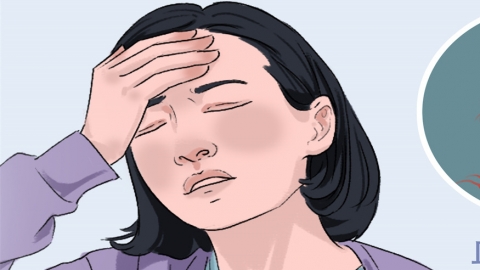What to do about swallowing dysfunction after cerebral infarction
Generally, the main treatments for swallowing dysfunction after cerebral infarction include swallowing function training, dietary adjustments, physical therapy, drug therapy, and traditional Chinese medicine (TCM) therapy. A detailed analysis is as follows:
1. Swallowing Function Training
Targeted training can improve the coordination of swallowing muscles. Common methods include oral motor exercises and dry swallowing training. Oral motor exercises include tongue protrusion, lateral tongue movement, and cheek puffing, which can strengthen oral muscle strength. Dry swallowing training involves repeated swallowing actions performed by the patient to enhance the sensitivity of the swallowing reflex, aiding in the recovery of swallowing function. Training should be conducted progressively under the guidance of professionals.

2. Dietary Adjustments
Adjust the texture of food according to the severity of swallowing difficulties to avoid coughing and subsequent lung infections. Patients with mild dysfunction can choose soft foods such as soft rice and well-cooked vegetables. Those with moderate dysfunction should consume food in a pureed or paste form, such as rice porridge or vegetable puree. Patients with severe dysfunction require nutritional support through a nasogastric tube to ensure adequate energy intake. Additionally, avoid feeding too quickly, and ensure the patient remains seated or semi-seated during meals to reduce the risk of aspiration.
3. Physical Therapy
Physical methods are used to stimulate nerves and muscles involved in swallowing. Neuromuscular electrical stimulation (NMES) is a commonly used technique. Low-frequency electrical currents stimulate throat muscles, promoting muscle contraction, improving local blood circulation, enhancing muscle strength and coordination, thereby alleviating swallowing difficulties. The current intensity should be adjusted according to the patient's tolerance level.
4. Drug Therapy
Medications are used to address symptoms associated with swallowing dysfunction caused by cerebral infarction. Patients may take medications such as mecobalamin tablets, vitamin B1 tablets, and sodium citicoline capsules under medical guidance. Mecobalamin and vitamin B1 tablets nourish nerves and promote the repair of damaged nerves. Sodium citicoline capsules improve cerebral circulation and brain metabolism, aiding in the recovery of neurological function, which indirectly improves swallowing dysfunction.
5. Traditional Chinese Medicine (TCM) Therapy
According to TCM, swallowing dysfunction after cerebral infarction is associated with blocked meridians and insufficient qi and blood. Treatment typically involves herbal medicines that promote blood circulation, resolve stasis, and open meridians. Acupuncture can stimulate specific acupoints, such as Lianquan (CV23) and Fengchi (GB20), to regulate qi and blood circulation, unblock meridians, and enhance the swallowing reflex, thereby improving swallowing function. Acupuncture should be performed by a qualified physician.
In addition, patients should undergo regular assessments of swallowing function during treatment, and the treatment plan should be adjusted according to the recovery status. Family members should closely monitor the patient's eating behavior, and if frequent coughing or fever occurs, prompt medical attention is necessary. Encourage patients to maintain a positive mindset and cooperate with treatment to promote the recovery of swallowing function as soon as possible.









